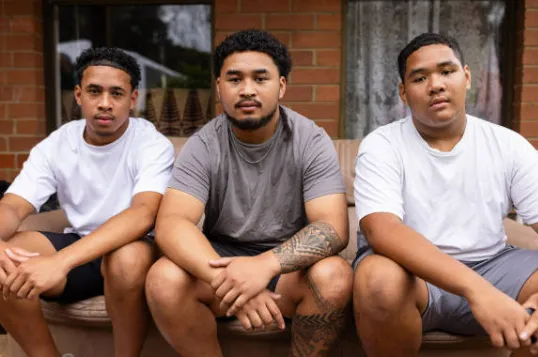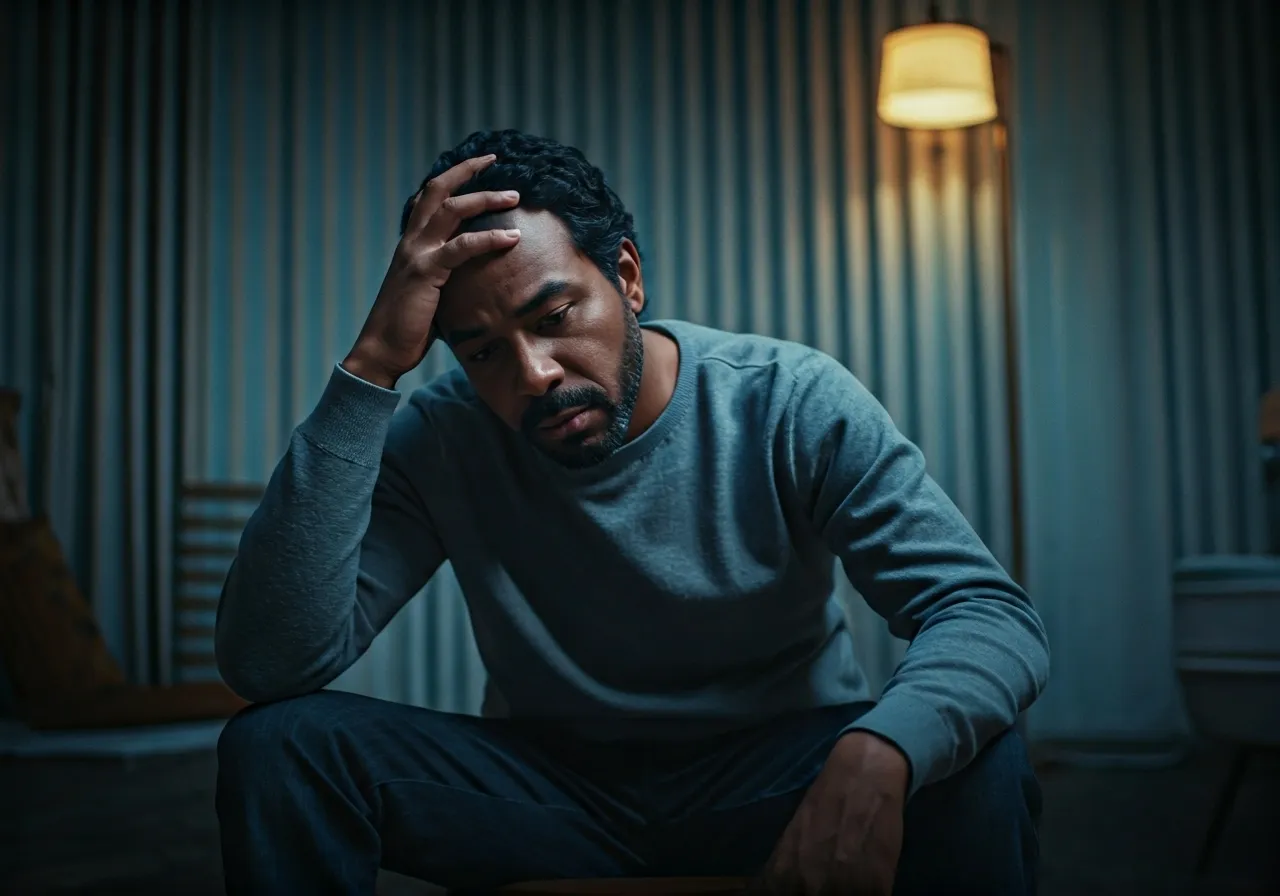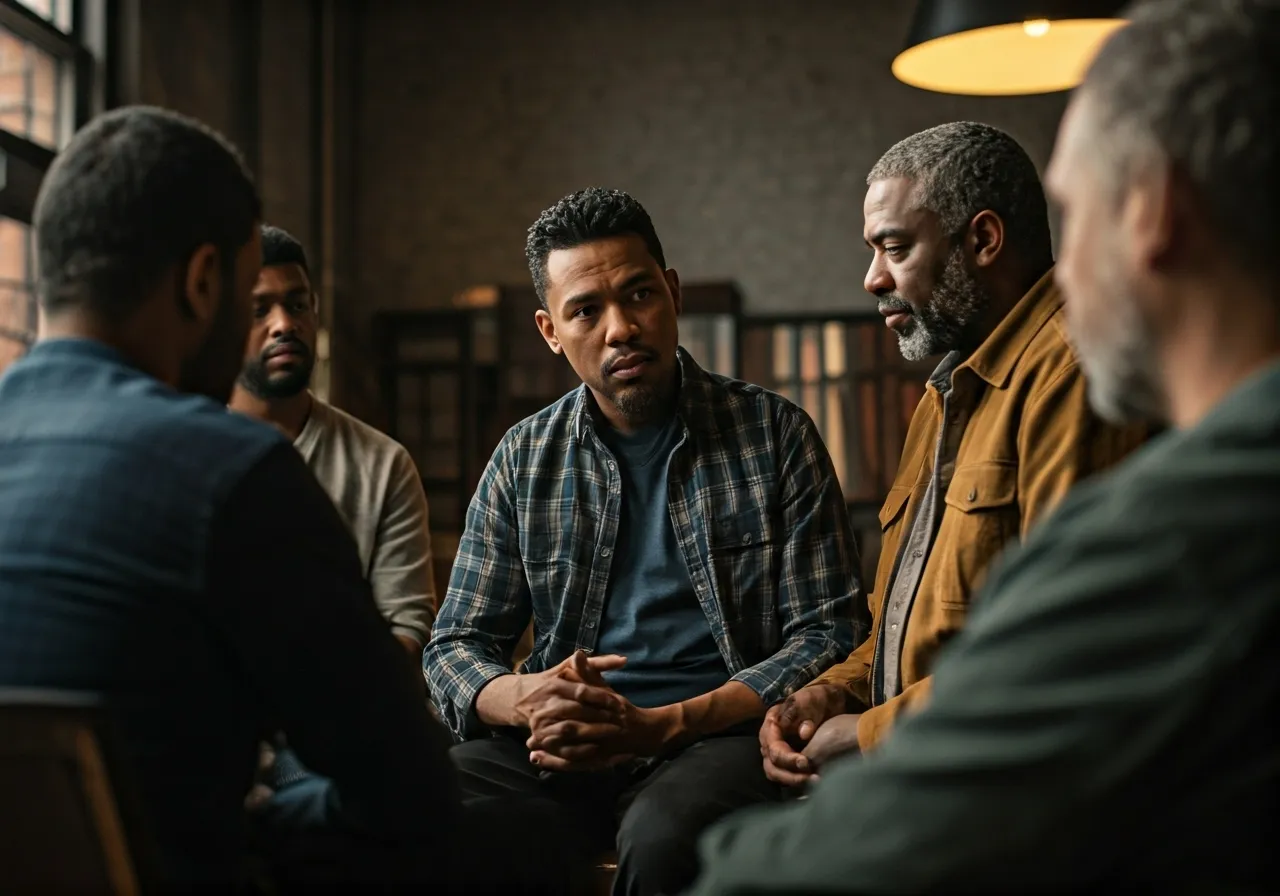The mental health of minority men, especially African Americans, is a big problem in the United States. There are a lot of pressures in society. Systemic racism and not having enough money make mental health worse for men of color. In Houston, all of these hard things happen at the same time. This gives African Americans and other men of color their own set of problems. Mental health care does not get enough attention. Because of that, there are major mental health disparities between these men and the general population. The way to fix this is with more awareness, stronger advocacy, and having better and more inclusive mental health services and health care.
The mental health needs of African American men and other men of color are often not fully understood or noticed. This can be because of deep social injustice and the effects of systemic racism. Many do not trust the health care system. Because of this, men of color may handle their pain alone. Cultural stigma also plays a big part. In many groups, people think that asking for mental health care shows weakness. This is wrong, but it is still a common belief among black men.
Money problems make things even harder. There are many men of color who do not have good health insurance. Without it, getting mental health care can cost too much. Many studies show men of color do not get mental health services as often. They often wait too long to ask for help with psychological distress. This stops them from finding good ways to feel better.
For men of color, things like race, how they are expected to act as men, and sexual orientation all come together and make life more complicated. Society often tells them not to show or talk about feelings. This keeps them from learning ways to deal with stress or pain. When we see how much mental health is ignored in these groups, it shows that there are big problems in health care and society that we must work on right now.

Houston’s cultural diversity brings both good chances and some problems when we talk about helping the mental health of African American men and other men of color. Things like not having enough money, feeling shame in the culture, and there not being enough mental health services can make it hard for people to get the help they need.
Even with these issues, community groups and local leaders in Houston work hard to make care better for all people. They push for mental health care that understands and respects different backgrounds. It’s very important to have local support and more people from minority groups in mental health services. This helps make sure these services are really useful for men of color and African American men who need them.
Houston is known to have one of the most racially mixed populations in the United States. In the city, there is a large number of African American and Hispanic people. These two groups together make up a big part of the general population. Here is a closer look at the numbers:

Even though these numbers show Houston as a lively and mixed city, there are still special issues that some men in the minority groups face. Things like stress in their surroundings, culture stress, and not enough mental health support add to the problems for these groups. If people understand the background of these numbers, then Houston can work better to help with mental health, better target its help, and give the right resources to those who need it in their general population.
Research shows that African American men in Houston have higher levels of psychological distress than white men. Many black men face depression, anxiety, and even social isolation. This is often because of systemic racism and the unfair way money and chances are spread.
The situation gets worse because there is a stigma around mental illness in black communities. Many African American men are hit harder by serious mental health problems. They do not get as much help and support as they should have. Because of this, a lot of people hold in their struggles instead of getting help from a professional.
The suicide rates in Houston among black men have also gone up in recent years. Now, there is a big need for action and prevention that is based on education in the community and understanding different cultures. We all need to work to bring down the stigma about mental illness, support mental health, and help black men get the care they need.

Minority communities often face barriers because of stigma and false ideas about mental health. The social support around men of color does not always give them a safe way to talk about what they feel. This can keep them from getting help from a therapist or another mental health professional.
In the mental health field, African American men may have a hard time finding a therapist who really gets them and the things they go through. These struggles point out why we all need to work together. Advocacy and more help in our communities are needed to help the mental health of minority groups.
Mental health is a big concern for many people. For African American men, talking about their feelings or asking for help can be hard. In the black community, there is pressure to act strong at all times. Many feel they have to live up to what others expect and not show weakness. If they do open up about their struggles, they might fear shame or being shut out by others. Cultural diversity can make these challenges even bigger for them.
There is proof that mental health stigma keeps a lot of people from getting the care they need. Stigma can come from feeling others will judge you if you seek help, or from blaming yourself for your struggles. Both of these ideas can stop African American men, and others in minority groups, from looking for mental health care. When this happens, people may keep ignoring signs of trouble, which only makes things worse. These feelings do not help folks who most need care and support.
To fight this problem, there need to be programs that focus on building trust within the black community and other minority groups. Peer-led talks can help make it normal to talk about mental health and health care needs. It is also very important to use approaches that fit each group’s culture, so people feel understood and respected. Doing these things can really help break down the barriers created by stigma and get more people the support they need. With the right efforts, we all can begin to make mental health care more open and easy to reach for everyone.
Many stories in the culture make it seem like men, especially men of color, are not likely to have mental health issues. People often think a "strong man" does not show feelings, and that doing so means weakness. Because of this idea, many men do not talk about their feelings of anxiety or ask for mental health treatment. Some wrong beliefs about masculinity do not let people get the help they need, and this can make their psychological distress worse. If men do not get health care for their mental health problems, things can get even more serious. We have to talk about these stereotypes. It is important to break them so we can make it easier to talk about mental health care. This will help men of color and others feel safe when they want to talk about their feelings and emotion, and also get support for mental health issues.
Economic and environmental factors have a strong effect on mental health, especially for minority men. When people have no job, worry about losing work, or have a low socioeconomic status, it can lead to feelings of anxiety. These issues can bring more psychological distress. For many, this will make mental health issues even worse.
Living in places with a lot of crime or bad housing adds to the stress. It can hurt a person’s emotional well-being in the long run. These things can also keep people from getting good mental health services. Because of this, poor mental health often keeps going from year to year. For some, this means higher suicide rates and a loss in quality of life. People in vulnerable groups may find it hard to cope. They might also struggle to get the help and support they need.
Job insecurity can really hurt the mental health of minority men. It often leads to feelings of anxiety and stress. When there is economic instability, it can make existing mental health issues even worse. Many of these men must deal with stereotypes about success and being a man, which makes things harder. Losing a job may cause people to feel less worthwhile. This can cause depressive symptoms or make people more open to mental health problems. Many of them do not get easy access to good mental health services, so they often do not get the help they need. It is important to understand these things to find ways that can help them deal with these challenges.
Quality education can have a big effect on mental health, especially for black men and men of color. For many of them, what they go through in school helps shape how they see themselves and how they feel in their daily lives. When they have the right academic resources, there tends to be less anxiety and fewer depressive symptoms. But if the education they get is not good enough, it can make them feel like they are not good enough and do not fit in, which can hurt their mental health.
There are also barriers in the education system itself that make things worse. These barriers can lead to more psychological distress among black men and men of color. Because of these mental health disparities, it is important to have support for students. We need strong support systems in place to help people build strength and feel safe to show their emotional expression.

Many minority men face big hurdles when dealing with mental health challenges. Depression and anxiety often show up for them. This can happen because of a mix of their socioeconomic status and bigger problems in society. Psychological distress is common. Many feel anxiety each day, and it gets mixed in with their normal life.
Old pain from historic unfairness can make these risks rise. It can push some people toward using substances, and can even lead to dual diagnosis at times. This also makes it harder to share their feelings or get emotional expression out in the open. For many, the worry about what others will think if they talk about mental health issues stops them from reaching out. That is why it is so important to have mental health services that understand these needs and cultures, so they can really help with these problems.
Mental health issues can be hard for men of color, especially black men. These problems are often worse because of what people think and how others treat them. Many black men deal with psychological distress. There are barriers in the way that limit their access to good mental health treatment. Some common signs are feelings of anxiety and depressive symptoms. These can be serious and may even lead to suicidal thoughts.
Cultural factors and stigma about mental illness make it hard for men of color to get the help they need. Because of this, people often do not talk about their feelings of anxiety or other mental health issues. There is a need for programs in the community to help people open up. It is important for all of us to support emotional expression and let everyone feel open to get help.
Substance abuse and mental health issues often happen together in men of color in the United States. This mix can make psychological distress worse. Many times, this dual problem goes unnoticed. As a result, there are big barriers to getting good health care and mental health care. People deal with stigma about both substance use and mental illness. This makes them less likely to get help when they need it.
Socioeconomic problems also play a part. Some people turn to alcohol or drugs to deal with hard times. This often keeps them stuck with poor health outcomes. To help with these mental health issues, it is important to have health care that understands the experiences and needs of men of color. Culturally competent support can make a real difference.
Experiences of trauma and PTSD in minority men are often deeply linked to past unfair treatment. Systemic racism and social injustice add a lot to psychological distress. These things make people more likely to have mental health issues. For many people, years of discrimination lead to ongoing emotional suppression. This often stops healthy emotional expression. Because of this, feelings of anxiety and depressive symptoms can be common. It becomes harder for them to get the mental health care they need. Culturally sensitive mental health services are very important. They can help with these problems and support healing in their communities. Mental health care needs to look at these unique experiences to make real change.
The way people think about being a man can have a big effect on the mental health of men, especially in groups that do not have as much power. Many times, the world around us tells men that showing their feelings or being open makes them look weak. This often leads to a place where men do not show how they feel. Because of this, there can be a lot of mental health consequences. Some men feel more anxiety and even become depressed. What it means to be a “successful man” can also keep men from getting the help they need. To help the mental health of men, it is very important to talk about these ideas. We need to help all men, but especially those who are pushed to the edge, to talk more about their feelings. This will be a good step toward better mental health for them.
Understanding how race, gender, and sexual orientation connect is important for dealing with the mental health crisis among men of color. Systemic racism, along with gender roles, can make psychological distress worse. It can also make it hard for them to show their emotions. For sexual minority men, having to manage more than one identity adds more struggles. This makes mental health issues more likely for them. When people face discrimination, it can cause rejection sensitivity, which can hurt their overall well-being. To help, there must be supportive spaces that see all these areas of their lives. This will help build up their strength and improve mental health for these communities.

Dealing with mental health can be tough. This is true for everyone, but men of color often face more problems. Stigma around mental health issues can make it hard for people to get support. Many do not want to look weak, and a lot of these ideas come from what people say a man should be. Still, there are ways to feel better about mental health.
Groups in the community, as well as talking with others who get what you go through, can help. These safe places let people speak about their feelings, grow strong, and support each other. When men of color see themselves in the people at mental health services, it helps them to trust and use these services. It’s clear that knowing the problems and seeing the right paths matters. It leads to the kind of help that can really work and last.
Many things make it hard for minority men to ask for help with mental health issues. There is a strong stigma around mental health, and this often mixes with ideas about what it means to be a man. For some, showing feelings or talking about their struggles can feel like a sign of weakness. People may worry about what friends or family will say. This pressure makes it tough for them to open up and let their emotions show.
At the same time, many do not know how to use or get around the healthcare system. They might not be sure where to start when searching for mental health services. All of this can make their feelings of anxiety and shame even stronger. So, they find it hard to talk about their mental health or get the support they need. This makes it tough to break the cycle and get the help that could make things better.
Culturally competent help in mental health services is very important for meeting the needs of men of color. It is vital to think about social, racial, and money issues that can shape the way people feel and act. This helps people the and the mental health professionals talk with each other better. Men of color may feel more trust when they see mental health professionals who have a background like theirs. This trust can help take away some of the stigma. It can also make it easier for these men to talk about their feelings and share emotional expression. When there is representation among therapists, counselors, and teachers in mental health services, it can push back against old ideas and help break barriers. By doing this, there is a better chance for good care, and more people in society can know about the mental health challenges these men face.
Tackling the many challenges in men’s mental health, especially for men of color, takes a group effort. We need empathy and understanding to do this right. Money problems, tough living conditions, and daily stress shape the mental health of many people. There are bigger issues in the system that make it hard for some to get the health care and support they need. Speaking up for mental health care that fits different cultures, building strong social support, and talking openly about how we feel can all help. These things let people handle their mental health with more confidence. Making safe places where people can talk, and strengthening local groups, matter a lot. This way, all men of color have a better chance to get good care and build resilience through support and honest emotional expression.
Common mental health challenges for minority men in Houston are depression, anxiety, problems with drugs or alcohol, and issues from trauma like PTSD. These mental health challenges get worse because of things like not having enough money, people looking down on getting help, and hard things that have happened in the past. That is why it is important to have mental health programs made for these men, so they can get the support they need.
To help a minority man with mental health problems, listen to him with care and do not judge. Try to have open talks where he feels safe. It also helps to tell him about places where people understand his culture and can offer support. Remind him that community support and care matter a lot. This can help lower his feeling of being alone and take away some of the shame about mental health.
In Texas, minority men have access to different mental health resources. There are community-based organizations that try to help. Support groups and telehealth services are also there for people in need. Some therapists know how to work with people from many backgrounds. Local programs want to take away the things that stop men from getting help. These plans work to reach out to more people so they get the support that they need for their mental health.
Mental health stigma in minority men is often stronger because of ideas in society, common stereotypes, and what the culture expects from men. This makes it hard to talk openly about mental health. Many may not want to ask for help. That keeps people from speaking up, and it can cause more pain and silence in their groups.
Local communities can help minority men with mental health by creating safe and welcoming spaces. They can make it easier for these men to get support and take part in community programs. Sharing information about mental health is also important. When they work together with local groups, they can help get rid of things that stop people from asking for help. This kind of team work also helps make mental health services better for everyone’s culture.
Stay informed about the latest research in psychology.
.png)
Explore how Internal Family Systems (IFS) therapy heals trauma and restores self-leadership.
.png)
Explore how Internal Family Systems (IFS) therapy heals trauma, anxiety, and inner conflict.
.png)
A practical guide to recognizing, preventing, and healing teacher burnout in Houston schools.